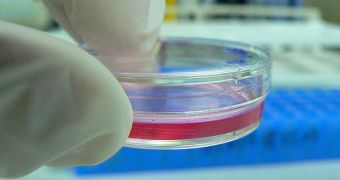A group of investigators in the United Kingdom announces the development of a new method for studying how Alzheimer's disease progresses. The experts say that stem cells collected from Down syndrome patients can be used to simulate this form of dementia.
By using this stem cell technique, investigators will be able to track the progression of this form of neurodegenerative dementia in the lab for weeks. The amount of data that might be collected via this approach is well-worth the wait, the team explains.
One of the things that always need to be kept in mind about Alzheimer's is that it's a very complex disease, whose earliest indicators may develop decades before the first discernible symptoms appear.
Details of the new approach were published in the February 16 issue of the top journal Science Translational Medicine. The work was funded by the Wellcome Trust and Alzheimer's Research UK, and conducted by scientists at the University of Cambridge.
In order to conduct the investigation, researchers asked both healthy volunteers and Down syndrome patients to provide them with samples of their skin cells. All these cells were then turned into stem cells, which were used to generate neural networks in the labs.
Though primitive, these webs were modeled in such a way that they mimicked the complexities of the cortex, to a certain extent. The cortex is the worst-affected by Alzheimer's, and it houses most of the nerve cells involved in underlying thinking and memory.
The reason why Down patients are well suited for such investigations is that they have an extra copy of chromosome 21. This segment of human DNA carries within it the instructions to produce beta-amyloid, the protein responsible for creating plaques in the brains of people suffering from dementia.
Nerve cells generated from induced pluripotent stem cells (iPSC) derived from Down patients therefore provide doctors with an interesting insight into how neurons are affected by such high amounts of beta-amyloid protein.
“One of the biggest challenges facing dementia researchers at the moment is a lack of good ways to track the disease over time,” explains Dr. Rick Livesey, the leader of the investigation. He is based at the Cambridge Cancer Research UK Gurdon Institute.
“By using stem cells donated from people with Down’s syndrome – who are much more likely to develop Alzheimer’s – we have been able to track how the disease develops over a shorter time period than has been possible in the past,” he goes on to say.

 14 DAY TRIAL //
14 DAY TRIAL //